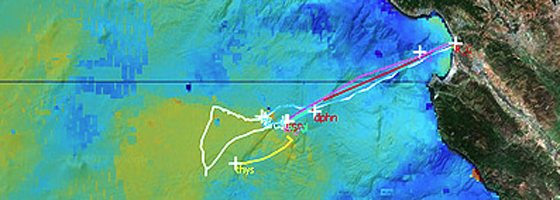Monterey Bay scientists hope plankton will reveal ocean processes

Scientists at the Monterey Bay Aquarium Research Institute embarked on a voyage to learn how algae and their nutrients tie into the ocean’s biological cycle, according to a report from the institute.
The research is focused on how ocean biology and physics relate to algal blooms. Algae are part of a process through which the ocean consumes carbon dioxide, which is transfered to the bottom of the ocean as the algae die. Eventually this process can make the ocean more acidic.
Scientists at the institute plan to track phytoplankton and monitor the ammonia it consumes. The scientists used satellite imagery, autonomous gliders and previous research to scout for a research area. They chose an area in the Pacific 50 miles off the central coast of California where warm, low-nutrient water mixes with cold, nutrient-rich water in the California Current.
The researchers will deploy autonomous waterborne vehicles once at sea to track plankton. Scientists will use a robotic DNA lab, which floats with plankton actively collecting samples. Two long range autonomous underwater vehicles will work alongside the float, collecting water chemistry data. Drifters will track the movement of the plankton patch. Another AUV will track conductivity, temperature and depth.
Image: MBARI’s Oceanographic Decision Support System depicts cold, nutrient-rich waters (blue) and warm California Current waters (yellow). (Credit: 2012 MBARI)





0 comments